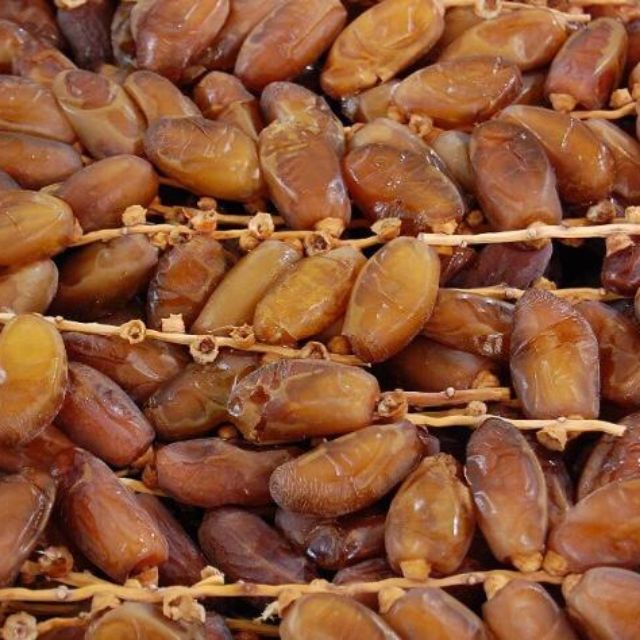Kurma Bertangkai: Key Factors Influencing Date Pricing

Introduction
Kurma Bertangkai refers to a specific type of dates commonly found in the wholesale market. In this blog post, we will delve into the world of this Kurma and explore the key factors that determine the pricing of dates in the wholesale market. Understanding these factors is crucial for both dates wholesalers and consumers to comprehend the pricing dynamics and make informed decisions. Join us as we uncover the various elements that influence the pricing of this date variety and shed light on their significance in the wholesale market.
Kurma Bertangkai: An Overview
Understanding Kurma Bertangkai
Kurma Bertangkai refers to a specific variety of dates that are sold in interconnected clusters or bunches. These dates are known for their unique presentation, where the individual dates remain attached to a stem or branch. The arrangement of dates in a bunch gives Kurma Bertangkai a distinct appearance and makes them visually appealing to consumers. This type of presentation is often favored for special occasions, religious festivals, and gifting purposes.
Factors Influencing Date Pricing in the Wholesale Market
1. Date Variety and Quality
The variety and quality of dates play a significant role in determining their pricing in the wholesale market. Different date varieties have varying levels of demand and popularity among consumers. Rare or premium varieties tend to command higher prices due to their limited availability and distinctive characteristics. Additionally, the quality of dates, including factors such as size, texture, taste, and appearance, can influence their pricing. Dates with superior quality and desirable attributes often fetch higher prices in the wholesale market.
2. Growing Conditions and Origin
The growing conditions and origin of dates also impact their pricing. Dates cultivated in specific regions known for their favorable climate, soil composition, and agricultural practices tend to be valued higher. The geographical origin of dates can contribute to their reputation and perceived quality. Consumers often associate certain regions with superior date production, which can influence the demand and pricing in the wholesale market. Dates grown in renowned and well-established production areas may command premium prices.
3. Harvesting and Packaging Techniques
The harvesting and packaging techniques employed for dates can affect their pricing. Dates that are carefully harvested at the optimal stage of ripeness and handled with precision tend to have better quality and shelf life. Additionally, the packaging plays a vital role in protecting the dates during transportation and storage. High-quality packaging materials and attractive presentation can enhance the perceived value of this variety and justify higher prices in the wholesale market.
4. Supply and Demand Dynamics
The fundamental principle of supply and demand plays a crucial role in determining date prices in the wholesale market. When the supply of dates is limited or demand is high, prices tend to increase. Conversely, when supply exceeds demand, prices may decrease. Factors such as seasonal variations, market trends, and consumer preferences can influence the supply and demand dynamics of dates. Wholesalers closely monitor these factors to adjust their pricing strategies accordingly.
5. Market Competition
Market competition among dates wholesalers can influence the pricing of Kurma Bertangkai. Wholesalers strive to offer competitive prices to attract customers and gain a larger market share. Intense competition can drive prices down, especially if there is an oversupply of dates or if wholesalers are engaged in price wars. Conversely, if wholesalers offer unique varieties, superior quality, or exceptional services, they may be able to command higher prices and differentiate themselves in the market.
Conclusion
The pricing of Kurma Bertangkai and other dates in the wholesale market is influenced by various factors. The variety and quality of dates, growing conditions, harvesting and packaging techniques, supply and demand dynamics, and market competition all play a significant role in determining the prices. Wholesalers and consumers alike should consider these factors to make informed decisions and understand the value proposition of this variety. By comprehending the factors that influence pricing, wholesalers can set competitive prices, while consumers can evaluate the quality and value of the dates they purchase.
Key Highlights:
– Kurma Bertangkai refers to dates sold in interconnected clusters or bunches, offering a unique presentation.
– Date variety and quality, growing conditions and origin, harvesting and packaging techniques, supply and demand dynamics, and market competition all influence date pricing in the wholesale market.
– Rare or premium varieties, superior quality, favorable growing conditions, and attractive packaging can justify higher prices.
– Supply and demand dynamics and market competition affect date prices, with limited supply or high demand leading to increased prices.
– Understanding the factors influencing date pricing enables wholesalers and consumers to make informed decisions and evaluate the value of this variety.
Disclaimer: The information provided in this blog post is based on general industry knowledge and may not reflect specific market conditions or pricing fluctuations. Prices may vary depending on various factors, including location, time of purchase, and individual business practices.